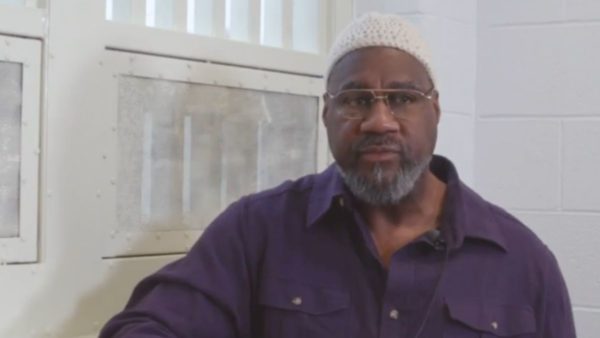After spending 49 years in prison, a former activist in the Black Liberation Army — a Black Panther Party spinoff — Jalil Abdul Muntaqim is getting paroled. The decision came Sept. 22 after multiple requests from Muntaqim, 68, who was incarcerated in 1971 at 19 after being charged with killing two police officers in New York.
Muntaqim spent nearly half a century in prison. His 11 prior requests for parole were all denied over the years, despite being eligible since 1998. While No. 12 proved to be his lucky number in June, it was even canceled after New York Attorney General Letitia James intervened. The parole board reversed the cancellation last month.

Formerly known as Anthony Bottom, Muntaqim was accused of murdering NYPD officers Waverly Jones and Joseph Piagentini after being arrested with Albert Washington in connection with an attack on a police station that resulted in the death of a police sergeant. Jones’ revolver was found in their possession and the two, as well as a third man, Herman Bell, were convicted 1975 after two trials, The New Yorker reported.
Former Black Panther member Ruben Scott, a key witness in the case, eventually recanted his testimony, saying the police had tortured him so he named the duo. A police ballistics expert was also convicted of perjury in the case, according the The New Yorker. Washington died of cancer in prison at age 64 in 2000. Bell was paroled in 2018.
Muntaqim has maintained he is innocent of the Jones and Piagentini case but pleaded no-contest in 2009 to conspiracy to commit manslaughter charges in the San Francisco sergeant’s case.
After contracting COVID-19 and being hospitalized in June, Muntaqim is finally being granted release, which must take place by Oct. 20, according to the order.
Advocates for Muntaqim are celebrating his release, while those opposed like the NYC Police Benevolent Association were “furious” over the decision.
“I found him to be one of the exceptional mentors within the New York state prison system,” Jose Saldana, who served time with Muntaqim and runs an advocacy program for older prisoners to be released, told NPR. “A lot of things happen in prison. Human beings transform their thinking and their behavior.”
“We are furious with the cowards and lunatics who claim to lead this state,” Police Benevolent Association president Patrick Lynch said of Muntaqim’s release in a Sept. 23 statement. “They have chosen to stand with the murderers, cold-blooded assassins and radicals bent on overthrowing our society.”
Piagentini’s widow, Denise Piagentini, has advocated to keep Muntaqim imprisoned over the years. She said she was “heartbroken” by the decision.
Muntaqim’s parole has sparked further debates over prison reform. He is one of many militants still imprisoned from the 1960s and ’70s.
On a website calling for his release, advocates detail Muntaqim’s accomplishments since being incarcerated.
Among them are claims Muntaqim obtained bachelor’s degrees in sociology and psychology, respectively, as well as earning certificates in architectural drafting and computer literacy. They also claim Muntaqim has received commendations for preventing prison riots, started multiple classes and clubs for inmates, raised money for children, published written works and been an advocate for prisoners’ rights.
Before becoming a member of the Black Panther Party and Black Liberation Army, Muntaqim, who was born in 1951 in the Bay Area, began his civil rights activism as an organizer with the NAACP in the 1960s. He joined the former organizations after Dr. Martin Luther King was assassinated, feeling the need to take up arms to protect himself and his community.
In a 2018 interview with documentarian Messiah Rhodes, Muntaqim said he often dreamed of being released so he could build a life with his family — his girlfriend was three months pregnant when he was arrested in 1971 — travel, and help his community.
“I think about going home, that’s what I think about. I think about going home to be with my kids, being with a loving woman, thinking about having opportunities to really put some of these dreams and ideas that I’ve had over the years and manifest them; give back to the community. I want to have my own home,” Muntaqim said.


